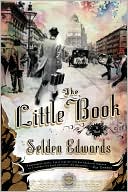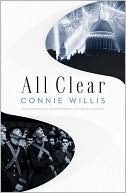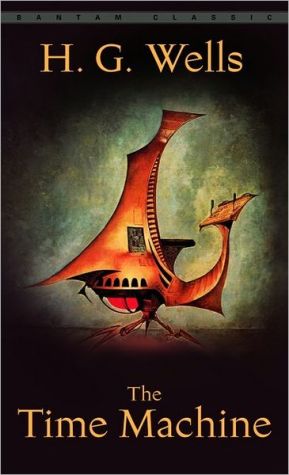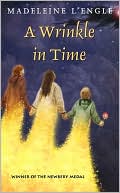Forever War
The monumental Hugo and Nebula award winning SF classic— Featuring a new introduction by John Scalzi\ The Earth's leaders have drawn a line in the interstellar sand—despite the fact that the fierce alien enemy they would oppose is inscrutable, unconquerable, and very far away. A reluctant conscript drafted into an elite Military unit, Private William Mandella has been propelled through space and time to fight in the distant thousand-year conflict; to perform his duties and do whatever it...
Search in google:
The monumental Hugo and Nebula award winning SF classic— Featuring a new introduction by John ScalziThe Earth's leaders have drawn a line in the interstellar sand—despite the fact that the fierce alien enemy they would oppose is inscrutable, unconquerable, and very far away. A reluctant conscript drafted into an elite Military unit, Private William Mandella has been propelled through space and time to fight in the distant thousand-year conflict; to perform his duties and do whatever it takes to survive the ordeal and return home. But "home" may be even more terrifying than battle, because, thanks to the time dilation caused by space travel, Mandella is aging months while the Earth he left behind is aging centuries...Gale Research"Haldeman exercises his literary license," James Scott Hicks writes in the Dictionary of Literary Biography, "to comment on, and ultimately to expunge from his memory, America's last ground war [Vietnam]." Hicks points out that Haldeman's first novel, War Year, based on his army diaries, deals with the Vietnam fighting directly. "But the demon of Vietnam," Hicks writes, "was not exorcised from Haldeman's soul by writing [War Year], and frontline combat became the subject of . . . The Forever War." Haldeman, Hicks believes, is particularly adept at presenting his "theme of quiet resentment felt by those waging war." Because of his scientific training in physics and astronomy, Haldeman is particularly careful to present The Forever War as realistically and accurately as possible. "The technology involved in this interplanetary campaign," Martin Levin of the New York Times Book Review notes in his review of The Forever War, "is so sophisticated that the book might well have been accompanied by an operator's manual. But then, all the futuristic mayhem is plugged into human situations that help keep the extraterrestrial activity on a warm and even witty plane."
Chapter One\ "Tonight we're going to show you eight silent ways to kill a man." The guy who said that was a sergeant who didn't look five years older than me. So if he'd ever killed a man in combat, silently or otherwise, he'd done it as an infant.\ I already knew eighty ways to kill people, but most of them were pretty noisy. I sat up straight in my chair and assumed a look of polite attention and fell asleep with my eyes open. So did most everybody else. We'd learned that they never scheduled anything important for these after-chop classes.\ The projector woke me up and I sat through a short tape showing the "eight silent ways." Some of the actors must have been brainwipes, since they were actually killed.\ After the tape a girl in the front row raised her hand. The sergeant nodded at her and she rose to parade rest. Not bad looking, but kind of chunky about the neck and shoulders. Everybody gets that way after carrying a heavy pack around for a couple of months.\ "Sir"- we had to call sergeants "sir" until graduation- "most of those methods, really, they looked . . . kind of silly."\ "For instance?"\ "Like killing a man with a blow to the kidneys, from an entrenching tool. I mean, when would you actually have only an entrenching tool, and no gun or knife? And why not just bash him over the head with it?"\ "He might have a helmet on," he said reasonably.\ "Besides, Taurans probably don't even have kidneys!"\ He shrugged. "Probably they don't." This was 1997, and nobody had ever seen a Tauran; hadn't even found any pieces of Taurans bigger than a scorched chromosome. "But their body chemistry is similar to ours, and we have to assume they're similarly complex creatures. Theymust have weaknesses, vulnerable spots. You have to find out where they are.\ "That's the important thing.'' He stabbed a finger at the screen. "Those eight convicts got caulked for your benefit because you've got to find out how to kill Taurans, and be able to do it whether you have a megawatt laser or an emery board."\ She sat back down, not looking too convinced.\ "Any more questions?" Nobody raised a hand.\ "OK. Tench-hut!" We staggered upright and he looked at us expectantly.\ "Fuck you, sir," came the familiar tired chorus.\ "Louder!"\ "FUCK YOU, SIR!" One of the army's less-inspired morale devices.\ "That's better. Don't forget, pre-dawn maneuvers tomorrow. Chop at 0330, first formation, 0400. Anybody sacked after 0340 owes one stripe. Dismissed."\ I zipped up my coverall and went across the snow to the lounge for a cup of soya and a joint. I'd always been able to get by on five or six hours of sleep, and this was the only time I could be by myself, out of the army for a while. Looked at the newsfax for a few minutes. Another ship got caulked, out by Aldebaran sector. That was four years ago. They were mounting a reprisal fleet, but it'll take four years more for them to get out there. By then, the Taurans would have every portal planet sewed up tight.\ Back at the billet, everybody else was sacked and the main lights were out. The whole company's been dragging ever since we got back from the two-week lunar training. I dumped my clothes in the locker, checked the roster and found out I was in bunk 31. Goddammit, right under the heater.\ I slipped through the curtain as quietly as possible so as not to wake up the person next to me. Couldn't see who it was, but I couldn't have cared less. I slipped under the blanket. "You're late, Mandella," a voice yawned. It was Rogers.\ "Sorry I woke you up," I whispered.\ "'Sallright." She snuggled over and clasped me spoon fashion. She was warm and reasonably soft.\ I patted her hip in what I hoped was a brotherly fashion. "Night, Rogers."\ "G'night, Stallion." She returned the gesture more pointedly.\ Why do you always get the tired ones when you're ready and the randy ones when you're tired? I bowed to the inevitable.\ Copyright ) 1974, 1975 by Joe W. Haldeman
\ From Barnes & NobleTwenty-five years ago, Joe Haldeman became an instant presence in the science fiction field with the publication of The Forever War, which went on to win both the Hugo and Nebula awards for Best Novel. The Forever War is an ingenious, complex account of soldiers whose lives have been brutally disrupted by the combined effects of relativity and interstellar war. It has remained in print continuously since its initial appearance, and has recently given rise to some unexpected new offshoots. In 1997, Avon Books released an amended version of the text that restored the middle section -- a downbeat novella published independently as You Can Never Go Back -- to its originally intended place. In early 1999, Haldeman contributed a second related novella --A Separate War -- to Robert Silverberg’s anthology, Far Horizons. Most recently, Haldeman reversed his own frequently stated position by publishing a novel-length sequel titled Forever Free. It seems appropriate, in light of this creative flurry, to return to the source -- The Forever War itself -- and take another look. The Forever War was Joe Haldeman’s second novel. His first, War Year, was published in 1972, and was a realistic, frankly autobiographical account of its author’s experiences as a combat soldier in Vietnam. These experiences, radically reconfigured, also found their way into The Forever War, which is very much a reflection of the lingering effects of the "seemingly endless" war in Vietnam. Haldeman’s version of that conflict begins in 1996, just one generation after the withdrawal of American troops from Vietnam. In that year, the combined forces of Earth declare war against an apparently hostile race of aliens known as Taurans. As part of the military response to the Tauran threat, William Mandella, the narrator-hero, is drafted and placed in an elite combat unit composed of the best and brightest members of his own generation. \ In order to engage the remote, enigmatic Taurans, Mandella and his cohorts must travel through a series of "collapsars," anomalous gateways in the fabric of quantum space. Passage through these gateways results in a relativistic phenomenon known as "time dilation." By the end of Mandella’s first, bloody campaign (which covers about two years of subjective time), more than 25 years have elapsed on his home planet. He returns to Earth to find himself a stranger in a very strange land, where he knows almost no one and where the patterns of day-to-day life have changed beyond recognition. Unable to cope with these changes, he reenters the barbarous but familiar society of the army, accompanied by his friend, lover, and fellow soldier, Marygay Potter.\ Back in uniform, Mandella finds himself trapped, once again, in an endless cycle of violence and temporal displacement. He endures (and barely survives) a series of lethal, faceless encounters with an enemy that no one, least of all the political and military leaders of Earth, can begin to understand. In the resulting chaos, the one constant in Mandella’s life is his relationship with Marygay. Finally, even that is taken away, and he is left with nothing but the prospect of dying for an incomprehensible cause.\ Throughout this process, relativity continues to impose its distortions. As the war carries Mandella and his fellow soldiers toward an increasingly remote series of battlefields, centuries roll by on Earth. In the course of these centuries, populations rise and fall, historical epochs flower and fade, and humanity evolves in unexpected directions. Eventually, at the tail end of a pointless, infinitely protracted war, Mandella returns -- a young/old man of barely 30 -- to a radically altered society he can neither recognize nor live in. In the end, he is forced to confront the fundamental irony of his thousand-year military career: Having left his home to do battle with aliens, he himself has now become the alien, and has no place in the world he fought to preserve.\ The Forever War is very much concerned with alienation, which assumes a cruel and quite literal form during the course of the story. And though, like all good novels, it is many things at once -- acerbic portrait of the military mentality; imaginative extrapolation of the principles of relativity; meditation on the future of warfare in a technologically advanced society -- it derives much of its power from its compelling portrait of disenfranchised soldiers detached, by the very nature of their experiences, from the social mainstream. In a way, The Forever War serves as an extravagant metaphor for the actual condition of the soldiers who fought in Vietnam, and who returned home to a divided society that failed, almost completely, to acknowledge their efforts or honor their sacrifices.\ After more than a quarter of a century, The Forever War continues to matter, continues to engage our sympathy for the individual men and women caught in the movement of huge, impersonal forces. Like Catch-22, to which it bears a familial resemblance, The Forever War is a novel about the desperate search for sanity in an unreasoning world, and the universality of its concerns makes it as fresh and relevant today as it was in 1975, when the national nightmare of Vietnam was still raw and recent. Literary prognostication may be a fool’s game, but the betting here is that The Forever War will endure well into the newly arrived millennium. Its energy, compassion, and bitter, hard-won wisdom are timeless qualities that should, by rights, continue to speak to new generations of readers.\ --Bill Sheehan\ \ \ \ \ \ Gale Research"Haldeman exercises his literary license," James Scott Hicks writes in the Dictionary of Literary Biography, "to comment on, and ultimately to expunge from his memory, America's last ground war [Vietnam]." Hicks points out that Haldeman's first novel, War Year, based on his army diaries, deals with the Vietnam fighting directly. "But the demon of Vietnam," Hicks writes, "was not exorcised from Haldeman's soul by writing [War Year], and frontline combat became the subject of . . . The Forever War." Haldeman, Hicks believes, is particularly adept at presenting his "theme of quiet resentment felt by those waging war." \ Because of his scientific training in physics and astronomy, Haldeman is particularly careful to present The Forever War as realistically and accurately as possible. "The technology involved in this interplanetary campaign," Martin Levin of the New York Times Book Review notes in his review of The Forever War, "is so sophisticated that the book might well have been accompanied by an operator's manual. But then, all the futuristic mayhem is plugged into human situations that help keep the extraterrestrial activity on a warm and even witty plane."\ \ \ \ Greg Bear“The Forever War is brilliant—one of the most influential war novels of our time. That it happens to be set in the future only broadens and enhances its message.”\ \ \ \ \ Iain Banks“The Forever War is not just a great science fiction novel, it’s a great Vietnam war novel—and a great war novel, without qualification—that is also science fiction. A classic to grace either genre.”\ \ \ \ \ James Sallis“The Forever War does what the very best science fiction does: It deals with extremes both societal and teleological; it places a frame around humankind’s place in the universe to show us what is outside the frame; and it functions simultaneously at the literal and metaphorical level. Inarguably one of the genre’s great novels, it is also among the finest novels ever written about war.”\ \ \ \ \ Steven King“If there was a Fort Knox for science fiction, we’d have to lock Joe Haldeman up and throw away the key.”\ \ \ \ \ William Gibson“To say that The Forever War is the best science fiction war novel ever written is to damn it with faint praise. It is, for all its techno-extrapolative brilliance, as fine and woundingly genuine a war story as any I’ve read.”\ \







